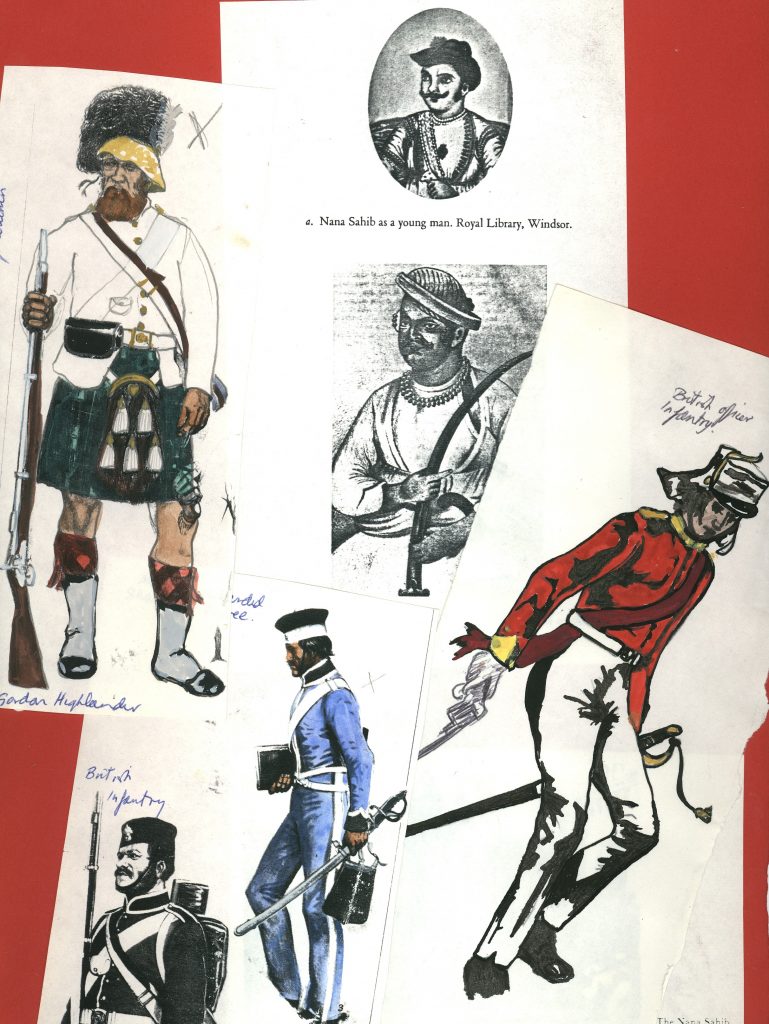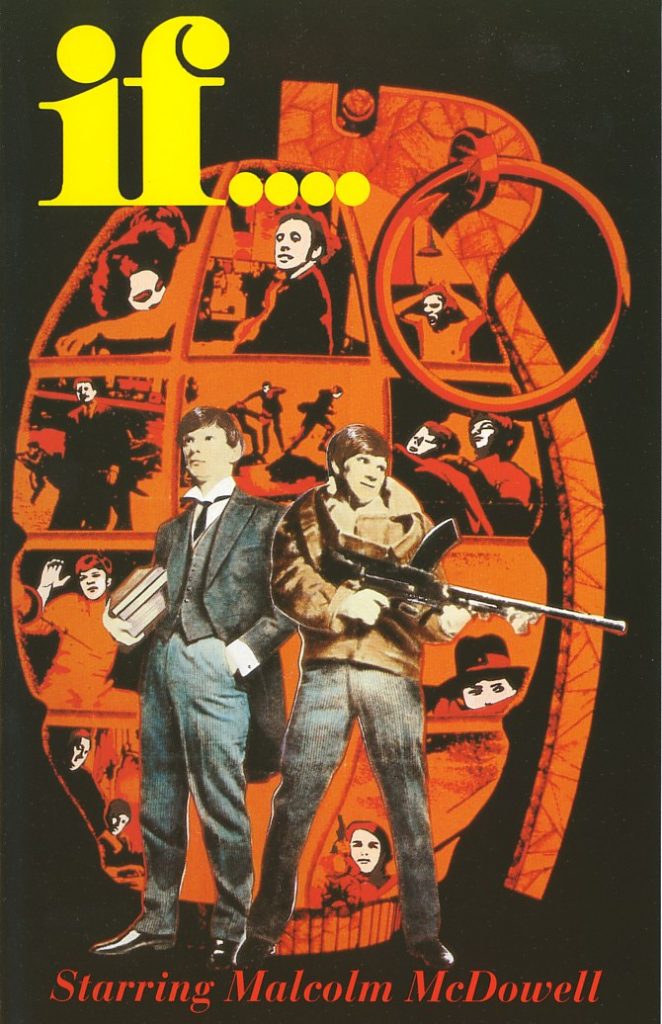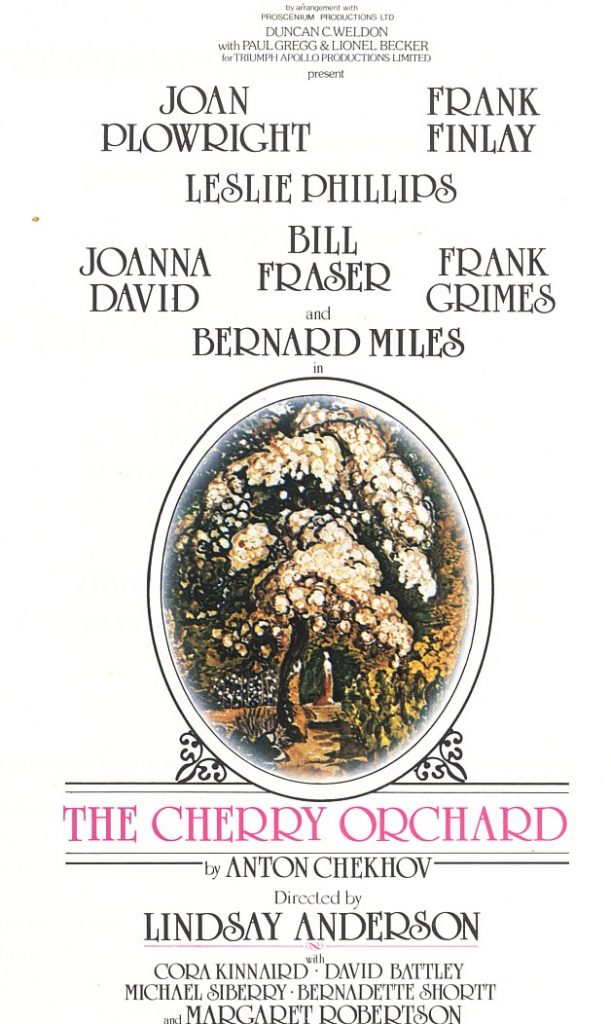The films I have made have always been particularly personal, and I have always had a producer’s as well as a director’s authority on them, whether contractually or by mutual understanding. Perhaps this is why I have not made so very many pictures.
Letter from Lindsay Anderson to Menahem Golan, 27 February 1991 (ref. LA 5/4/14/10)
Lindsay Anderson’s extensive archive of personal and working papers provide a detailed insight into his creative struggles. Even for established film directors like Anderson it was often difficult to get projects off the ground. This blog looks at five unmade projects which could have made interesting additions to his filmography.
1. Wuthering Heights (1964)
Following their successful partnership on This Sporting Life the team of Lindsay Anderson (director), David Storey (writer) and Richard Harris (actor) attempted to develop a number of film projects together including an adaptation of Emile Brontë’s classic novel Wuthering Heights. The file on the project in the archive includes scripts and treatments for the planned film along with notes made by Harris on the character of Heathcliffe (a role he was keen to play). The increasing lure of Hollywood for Harris and Anderson’s troubled, tempestuous relationship with the actor resulted in plans for the project being abandoned.

2. The Grand Babylon Hotel (1976)
Anderson’s track record of producing successful (and critically acclaimed) British films brought him to the attention of the major Hollywood studios. In 1976 he was approached to direct a film version of James Fenimore Cooper’s classic story The Last of the Mohicans. He took this opportunity to pitch a project he had developed with the writer Gavin Lambert based on Arnold Bennett’s novel The Grand Babylon Hotel. The original book set its tale of espionage and intrigue in 1900 but Anderson and Lambert moved the action to 1912 on the eve of the First World War. The studio was enthusiastic and Anderson signed a major development deal, drafting a script with Lambert. The planned film pitched an all-star cast of British acting talent to play the script’s ensemble of kings, princes, spies, detectives and hotel staff. Unfortunately events outside Anderson’s control conspired to side-line the project, with a studio take-over halting production.
I have always had a horror of that film director’s life which consists of endless meetings with producers, meetings with distributors, lunches, telegrams and international phone calls.
Letter from Lindsay Anderson to Gavin Lambert, 16 May 1977 (Ref. LA 5/4/2/3)
3. Empire / Mutiny (1979-1981)
Anderson was born in India and had a lifelong interest in the country. He was offered a number of Indian-based projects by Hollywood studios and began to develop the idea of a drama set around the events of the Indian Rebellion of 1857, when Indian troops under British command mutinied and sparked a rebellion which spread across northern India. He travelled to India in 1979, visiting the areas in which the mutiny took place, photographing memorials and buildings and scouting locations for the planned production.
The studio was excited by the potential of the project with a report noting it was an “Oscar-calibre project… a period adventure spectacle like Zulu and Shogun.” Work on the project continued for several years but Anderson found it increasingly difficult to work within the studio system (and with the screenwriters the studio had provided). It was perhaps the most ambitious project Anderson developed, an historical epic with a number of large and bloody battle scenes requiring hundreds, if not thousands, of extras. It was also the closest Anderson came to making a romantic action adventure like the westerns of his favourite director John Ford.



4. If…. 2 (1986-1994)
Anderson had a long, fruitful (and sometimes frustrating) working partnership with the writer David Sherwin. The team of writer and director produced the trilogy of films which define Anderson’s career – If…., O Lucky Man! and Britannia Hospital. In the mid 1980s they began to develop the idea of making a sequel to If…., returning to the story of schoolboy rebellion that gave them their first and biggest success. Throughout the various outlines, drafts and re-writes that are present in the archive the basic idea of the main characters of the original film (played by the same actors) returning to the school for a reunion 25 years later remained. The scripts abound with nods and references to characters and events in both If…. and its unofficial sequels O Lucky Man! and Britannia Hospital, the creative process providing Anderson with an opportunity to reflect on his filmmaking career and most popular films.
5. The Cherry Orchard (1990-1993)
Anderson’s careers as film and theatre director combined in the early 1990s when he attempted to create a film version of The Cherry Orchard, Chekhov’s classic play abut a Russian land-owning family at the turn of the twentieth century who are forced to sell part of their estate because they are heavily in debt. Anderson was very familiar with the play having directed productions in 1966 and 1983. The files relating to the project in the archive document a series of aborted attempts to green-light the project. The proposed adaptation was better received by producers than some of the other projects he was developing at the time but the stumbling block was the failure to attach the star names to the project which would guarantee funding. The Cherry Orchard files also include one of our favourite letters in the collection which encapsulates the frustration Anderson felt chasing what he described as “the desperate and preposterous struggle for a deal.”
Further reading:
Magee, Karl, Hooray for Hollywood? The Unmade Films of Lindsay Anderson, in Sights Unseen: Unfinished British Films (Cambridge Scholars Publishing, 2008)
Exhibition:
Find out more about Anderson’s life and work in the exhibition Never Apologise – on display at the Macrobert Arts Centre from 23 January to 30 April 2023.